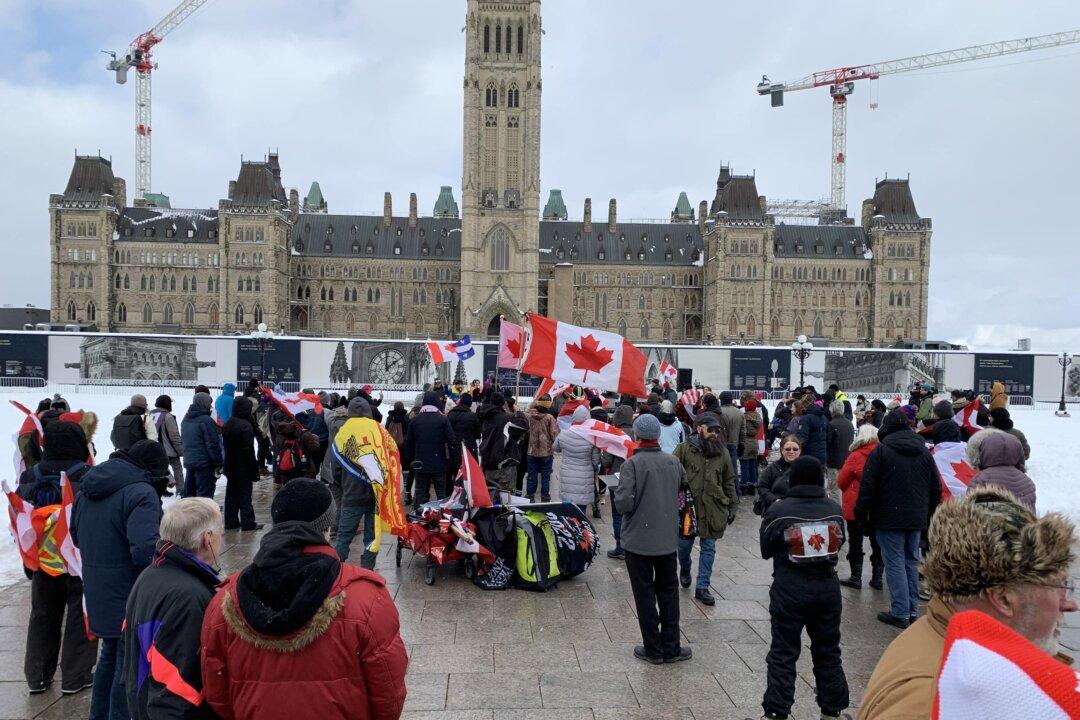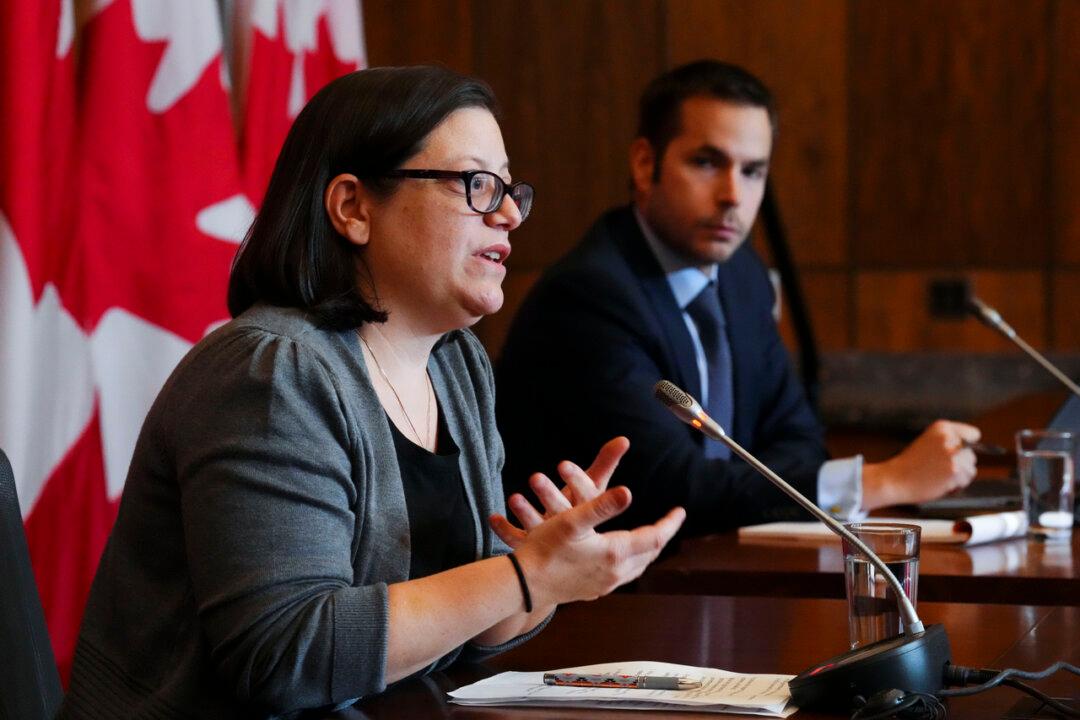OTTAWA, Canada—Police put the number of arrests at over 100, and the number of vehicles towed at 21 on Feb. 18 as law enforcement escalated its confrontation with protesters in Ottawa.
Mounted police and officers on foot advanced on crowds to push them away from the designated secured area, in some instances knocking down protesters.





